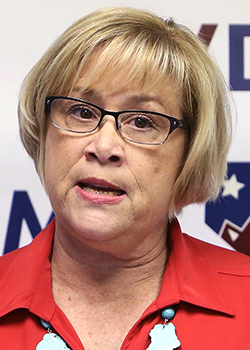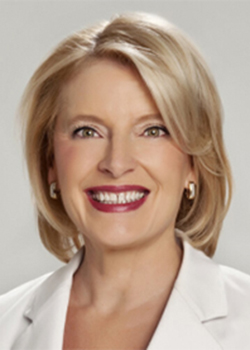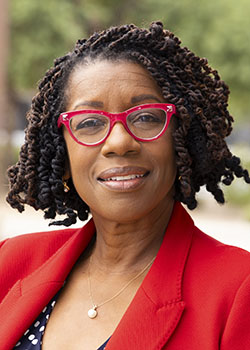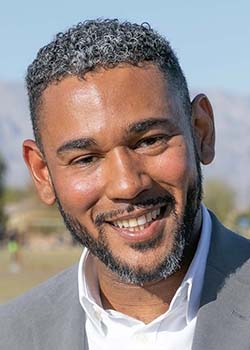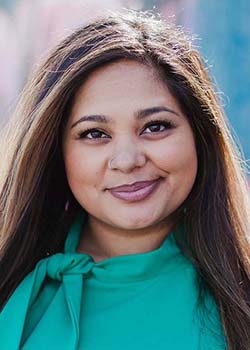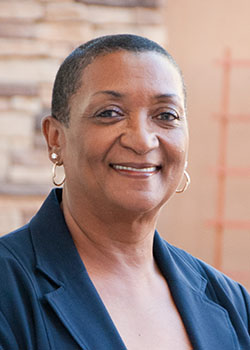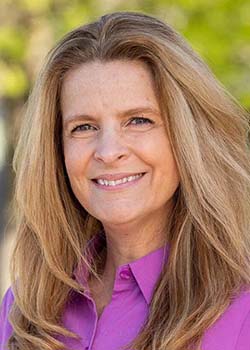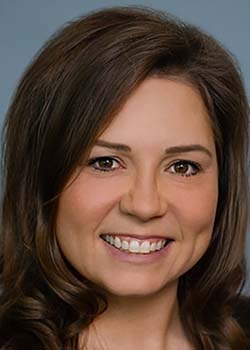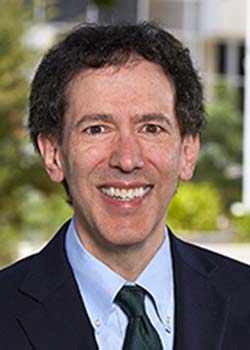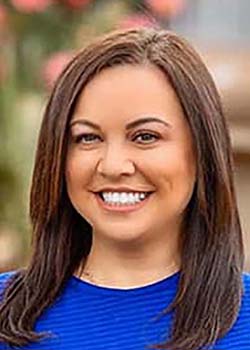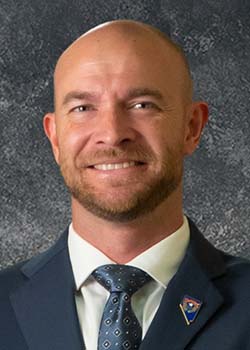Twelve first-time state lawmakers were among the 21 senators and 42 Assembly members when the 81st session of the Nevada Legislature convened on Monday. Two of the new members join the Senate, 10 join the Assembly; all 12 represent some part of Clark County.
Four are Republicans and eight are Democrats, and while their numbers don’t change the partisan makeup of the Senate, which Democrats control 12-9, two of the new Republican Assembly members helped their party break the Democrats’ supermajority, though Democrats still hold a comfortable 26-16 advantage.
One of the new Assembly Republicans, Annie Black of Mesquite, has chosen not to caucus with her party, saying that other Republicans had opposed her successful effort to unseat a sitting Republican and that the caucus wasn’t conservative enough for her.
Here’s a brief rundown on the new faces:
Carri Buck, Senate District 5, Henderson: Republican Buck succeeds Democrat Joyce Woodhouse, who was term-limited. She has draft legislation that relates to short-term rental laws, allowing bar owners to have more gambling machines inside their establishments, and streamlining the process for getting IDs for inmates who have been released.
With a background in education administration, including time as a principal in the Clark County School District, she now serves as the executive director of Pinecrest Academy, a charter school. Buck plans on bringing her experience on the ground level in the education sector to the Legislature, as evidenced by her other bill drafts that deal with grade point average for high-school students who take courses at community college and those dealing with charter schools.
“I believe in free market,” Buck said. “I want to protect our rights as parents in where we send our kids to school.”
Roberta Lange, Senate District 7, Las Vegas: Democrat Lange succeeds a fellow Democrat, David Parks, who was term-limited. Lange, a former three-term chair of the state Democratic Party, said her focus for the session is on helping small businesses recover from the economic effects of the pandemic and looking at how to improve education.
As bad as the pandemic has been, Lange said that it has “offered us opportunities to look at education and how things can be different.” She has several bill drafts relating to education, including one on teaching financial literacy that could potentially count for college credit.
But Lange said that the tighter budget will be a hurdle in everything lawmakers do this session.
“It’s all not good, to be honest. We have to hope that we’ll get back on track and in the interim, that we’ll have more money come into the budget,” she said.
Heidi Kasama, Assembly District 2, Summerlin: Republican Kasama succeeds fellow Republican John Hambrick, who was term-limited. Kasama, a longtime certified public accountant who now works as a Realtor in Las Vegas, has a varied list of bill draft requests that include tweaking the eviction process, changing how room tax is collected from third-party booking sites and looking for ways to keep the state’s list of active voters better maintained.
Given the state’s tighter budgets, Kasama said she is “hoping that we only spend the money we have,” and wants to keep the state from “not over-spending, not over-taxing and not over-regulating.”
Shondra Summers-Armstrong, Assembly District 6, Las Vegas: Democrat Summers-Armstrong succeeds Democrat William McCurdy II, who left office to run successfully for the Clark County Commission. She will take leave during the session from her job as a management analyst with the Regional Transportation Commission of Southern Nevada, where she has worked for nearly 25 years. Her draft legislation requests reflect her community service and advocacy work in her West Las Vegas district: eviction protections, zoning and community redevelopment guidelines, as well as Medicaid coverage for doulas.
“I don’t think that there’s one single thing that I that I want the body politic to accomplish. I want the body politic to do what is best for our state as a whole,” she said in a mid-December interview. “At the end of any negotiation or any process, if I can look back and say I did my best, I worked hard with the other people around the table, that we had this huge list of things that needed to get done and that we really worked hard to do the best for as many people as possible…I think that’s all that I could ask for. And that’s what I’m going up there to do.”
Cecelia Gonzalez, Assembly District 16, Las Vegas: Democrat Gonzalez succeeds Democrat Heidi Swank, who did not seek re-election. With a background in criminal justice reform and education, Gonzalez is pursuing a doctorate in multicultural education at UNLV and has a keen legislative interest in education and issues that affect families.
Her draft legislation requests are “bills that will help families in Nevada,” she said in an interview last month. One of them would end the use of license suspensions for failure to pay traffic tickets or make appearances in court – a “huge factor in people trying to get their lives back together and on track,” she said.
The COVID-19 pandemic hit the state “pretty hard when it comes to our budget and budget cuts,” she said. “And so we are hoping that the federal government will provide some assistance. And, you know, we’ll continue to prioritize services and policy that impact Nevada families as a whole.”
Clara “Claire” Thomas, Assembly District 17, North Las Vegas: Democrat Thomas takes the seat once held by Democrat Tyrone Thompson, who died in office in 2019. She embraces his legacy of youth advocacy and family support and decided to run out of concern that his work would not carried forward.
Thomas served nearly 20 years in the U.S. Air Force, then went to work as a Justice Court clerk while also picking up degrees in psychology, social services and public administration. Her bill drafts relate to public and behavioral health and care for the elderly, but educating children remains a top priority.
“I’ve been here for 36 years for 36 years we’ve been 49th, 50th in the nation” in educational ranking, she said in an interview this week. “We need to invest in them and give them the fair chance that they will need 20 and 30 years from now.”
Venicia Considine, Assembly District 18, Las Vegas (south): Democrat Considine succeeds Democrat Richard Carrillo, who ran unsuccessfully for Senate. An attorney for the Legal Aid Center of Southern Nevada, her focus is on affordable housing, health care and mental health, and education. This year, that means protecting such programs from cuts as the state contends with pandemic-driven revenue impacts. Two of her draft pieces of legislation focus on higher education and eligibility for adult high school programs.
“We need to get all the adults in the room and be serious about helping the families and the economy,” Considine said, emphasizing education. “Without equitable quality education, getting that job that will pay for a safe place to live becomes further and further out of reach… So I really want to focus on protecting educations as much as possible. because that’s the future.”
Annie Black, Assembly District 19, Mesquite: Republican Black succeeds Republican Chris Edwards, whom she defeated in the primary election in one of the state’s most conservative districts. Among the newest crop of lawmakers, she has drawn the greatest pre-session attention, not for entirely welcome reasons: her participation at the Jan. 6 protest in Washington, D.C. that led to the U.S. Capitol being overrun by a mob led national Democrats to push for her resignation, a call she rejected. (Black says she did not enter the Capitol.) She has decided not to caucus with other Assembly Republicans.
“I’ve worked very hard to control my messaging, to control how I have interacted with the voters, the promises that I’ve made,” she said in a mid-December interview. “At the end of the day, I just felt like agreeing to what the caucus wanted me to agree to was sort of giving up my control over that.”
Her bill drafts, which she acknowledges are “long shots,” including proposals for a special committee to eliminate nonessential spending, exempting certain small businesses from state licensing requirements and fees, and expanding the need for supermajority approval on certain budget outlays.
“I think it’s going to be a bit of an uphill battle for me to accomplish the things that I would love to accomplish,” she said. “But I’m still going to go after what I promised in my campaign I was going to do which is, you know, not to raise taxes and cut spending and those things.”
Dr. David Orentlicher, Assembly District 20, Las Vegas: Democrat Orentlicher succeeds Democrat Ellen Spiegel, who ran unsuccessfully for Senate. An attorney and physician who teachers health law at UNLV, he said his focus for the session is strengthening the social safety nets for Nevadans to ensure that they can get through the pandemic with adequate protections. His bill draft requests include looking for ways to increase federal funding for Medicaid, creating an advisory task force to explore policing reforms and exploring ways to give the state treasurer more flexibility in investing.
“The pandemic has exposed a lot of the gaps in our social system and in our financial system. It reminds us of how important it is to think of how we can make changes that will protect us going forward, whether it’s doing more to diversify our economy, to improve our public health system, and also our revenue system so that we’re better prepared for the next challenge,” Orentlicher said.
Andy Matthews, Assembly District 37, Las Vegas: Republican Matthews succeeds Democrat Shea Backus, whom he defeated in the general election for the northwest valley seat. Matthews is no stranger to policy, having previously served as the president of the conservative think-tank Nevada Policy Research Institute, and he said his main focus is on election security and preventing tax increases on Nevadans.
One of his bill drafts would eliminate some provisions from Assembly Bill 4, the election reform omnibus passed during the 2020 special session that allowed for universal mail-in ballots amid the COVID-19 pandemic among other changes, which he said was “problematic and something that doesn’t serve the interest of election security for the state.”
His other bill drafts include proposals to increase penalties on government agencies for violating public records requests, make collective bargaining negotiations for public employee unions subject to the Open Meeting Law, explicitly allowing law enforcement agencies to participate in the 287(g), a federal partnership that essentially deputizes local officers to act as federal immigration agents, and creating “charter agencies” within the state government that would allow them to operate outside certain personnel and budget rules.
Matthews said he wants to “create a climate where we can see economic growth, and that means opening up our businesses, and getting people back to work and making sure our free enterprise system can be the engine for our economy.”


